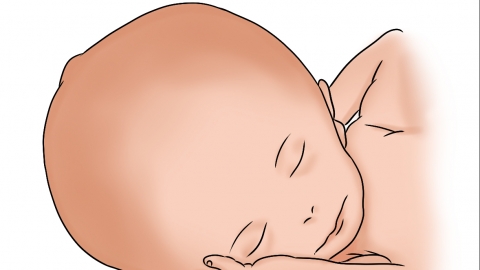What are the causes of brain herniation?
Under normal circumstances, the formation of brain herniation may be caused by natural fluctuations in intracranial pressure, aging, meningitis, hydrocephalus, intracranial hematoma, and other factors. Symptomatic management is required through general treatment, medication, surgical treatment, and other methods. If discomfort occurs, it is recommended to seek medical attention promptly and undergo appropriate treatment under a doctor's guidance. Detailed explanations are as follows:

1. Natural Fluctuations in Intracranial Pressure
Dramatic physical activity, emotional excitement, or certain physiological changes can cause natural increases in intracranial pressure. If an individual has abnormal cranial structure or fragile brain tissue, brain herniation may also be triggered. Symptoms are usually not obvious and may manifest as transient headaches or dizziness. Special treatment is generally not required, but strenuous exercise and emotional excitement should be avoided. Strengthening physical fitness and improving the brain's pressure resistance are also recommended.
2. Aging
With aging, brain tissue may gradually atrophy and degenerate, leading to a relatively enlarged cranial cavity. This change may make brain tissue more prone to displacement during fluctuations in intracranial pressure, thereby increasing the risk of brain herniation. Patients may exhibit age-related changes such as memory loss and slowed reaction time. Maintaining a healthy lifestyle and regular medical check-ups are recommended to help prevent increases in intracranial pressure.
3. Meningitis
Meningitis is mainly caused by pathogens such as bacteria, viruses, and fungi infecting the meninges. Intracranial inflammation leads to brain swelling, increased intracranial pressure, and displacement of brain tissue, which can result in brain herniation. Symptoms may include fever, headache, and neck stiffness. It is recommended to use medications such as acyclovir tablets, ornidazole dispersible tablets, and dexamethasone acetate tablets under medical guidance for treatment.
4. Hydrocephalus
Obstruction of cerebrospinal fluid circulation leads to fluid accumulation within the ventricles, causing hydrocephalus, which increases intracranial pressure. Elevated intracranial pressure compresses and displaces brain tissue, potentially causing brain herniation. Patients may experience symptoms such as headache, gait instability, and urinary incontinence. It is recommended to use medications such as mannitol injection, hydrochlorothiazide tablets, and triamterene tablets under medical supervision for treatment.
5. Intracranial Hematoma
Head trauma can cause intracranial hematoma, during which localized pressure rises significantly. Brain tissue is compressed and shifts toward areas of lower pressure, which may lead to brain herniation. Symptoms may include headache, nausea, and impaired consciousness. Surgical interventions such as hematoma evacuation or decompressive craniectomy may be necessary to remove the hematoma, reduce intracranial pressure, and promote recovery of brain tissue.
In daily life, it is recommended to maintain good living habits, such as avoiding late nights and engaging in moderate exercise, which can help reduce the risk of brain herniation.
References
[1] Yang Zhen. Factors Affecting the Prognosis of Post-Hemorrhagic Hydrocephalus in Hypertensive Patients [J]. Chinese Journal of Public Health Engineering, 2024, 23(05): 628-630+633.
[2] He Wei. Discussion on the Treatment of Brain Herniation-type Intracerebral Hemorrhage with Neuroendoscopy and Intraoperative Ultrasound Assistance [C]// Chinese Medical Doctor Association, Chinese Medical Doctor Association of Neurosurgery. Abstract Collection of the 18th Annual Meeting of Chinese Medical Doctor Association of Neurosurgery - Cerebrovascular Disease. Qilu Hospital of Shandong University (Qingdao); 2024: 225.





